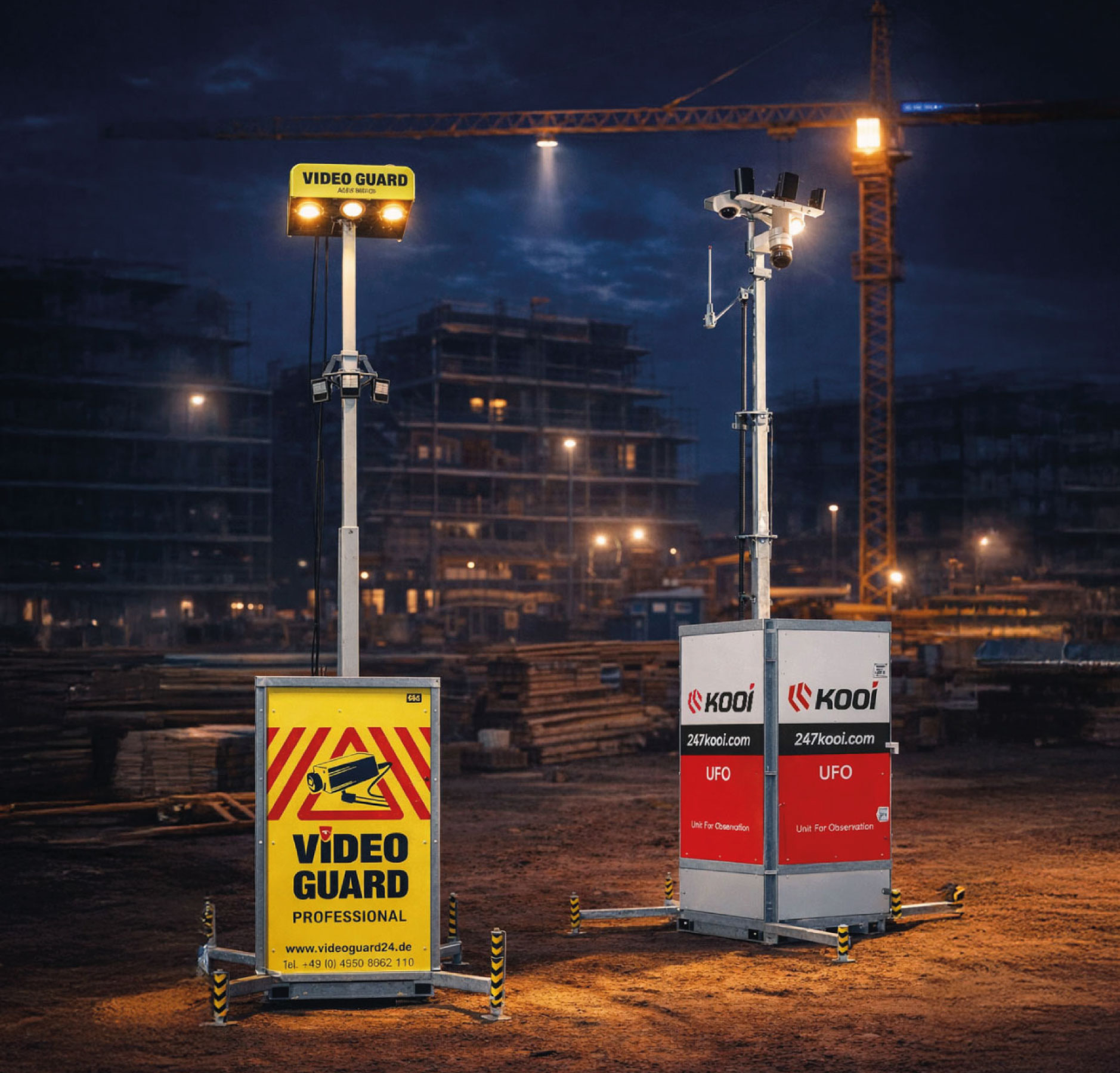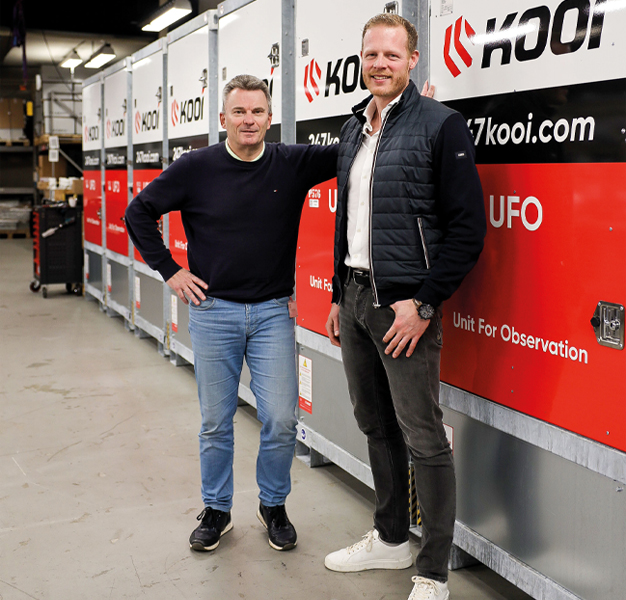/NL/Headers/De%20knabbelaar%20van%20Caparis%20in%20werking.png?width=1920&height=550&name=De%20knabbelaar%20van%20Caparis%20in%20werking.png)
/NL/Headers/De%20knabbelaar%20van%20Caparis%20in%20werking.png?width=1920&height=550&name=De%20knabbelaar%20van%20Caparis%20in%20werking.png)
Kooi and Caparis take a new unique step in collaboration with the Knabbelaar
Kooi Camera Surveillance and talent company Caparis are further intensifying their collaboration. In addition to producing camera systems, Caparis will also begin fully recycling Kooi’s decommissioned solar panels from 1 October. This is thanks to its unique invention, the A4S 2000, also known as the Knabbelaar.
Thanks to the Knabbelaar, more than 85% of each solar panel is returned to manufacturers and reused for new products such as solar panels, heat pumps and insulation materials. This suits Kooi perfectly: as the European market leader in mobile camera surveillance, it is the first in its industry to adopt this innovative recycling solution. ‘We want to make sustainability tangible, not only through our products, but also in how we dispose of them,’ says Rutger Werkhoven, Sustainability Manager at Kooi.
Shared ambition
Kooi and Caparis share a strong commitment to sustainability and social enterprise. Both companies have set their sights on 2030, by which time they aim to achieve zero CO₂ emissions. Werkhoven explains: ‘We always take into account the impact of our work on the environment. We strive for energy efficiency, waste reduction and the use of renewable sources.’ Kooi’s vehicle fleet is gradually becoming electric, 130 solar panels generate most of the power at its head office in Drachten, and the PowerBox generators run on methanol or HVO100, which significantly reduces emissions. Caparis has also been working on sustainability for some time, with 30 electric company cars, 8,000 solar panels and 92 charging stations. In addition, the company seeks to collaborate primarily with partners who pursue not only social but also environmental goals.
Assembly of UFOs
Since 2023, the professionals at Caparis Montage have been responsible for assembling 20 UFOs per week. Alex Bonnema, Managing Director of Caparis, says: ‘Sustainability and circularity cannot be separated from inclusivity. In a circular economy, all raw materials are reused, and so are people’s talents. Kooi and Caparis share that vision. Our people build the UFOs and do valuable work that allows them to use their skills. We look for work that truly matters. It’s wonderful that Kooi has placed its trust in them, and we are proud to contribute to a safer world.’ After extensive training, the talented employees now assemble the high-quality camera systems completely independently. This also relieves production pressure at Kooi’s own facility in Drachten.
/NL/7%20Overig/Caparis%20en%20Kooi%20werken%20samen.png?width=1000&height=1000&name=Caparis%20en%20Kooi%20werken%20samen.png)
/NL/7%20Overig/Caparis%20en%20Kooi%20werken%20samen.png?width=1000&height=1000&name=Caparis%20en%20Kooi%20werken%20samen.png)
Recycling solar panels
‘Where talents flourish, the world becomes a better place’ is the motto of Caparis, one that Kooi wholeheartedly embraces. This new step in their cooperation perfectly reflects that philosophy. ‘Our oldest solar panels are now 15 years old, but there are also newer ones that have been damaged during transport,’ says Werkhoven. ‘We can now have around 100 panels a year processed at Caparis into new raw materials.’
The Knabbelaar
Then comes the Knabbelaar. It was conceived by innovator and solar specialist Klaas Hoekstra, who wanted to design a machine capable of breaking down old solar panels while also providing meaningful work for people with disabilities. Commissioned by Caparis, Hoekstra developed a pilot production line that efficiently grinds solar panels into tiny, reusable materials. ‘The line is unique in the Netherlands because it is extremely energy-efficient,’ says Hoekstra. ‘It only takes the energy from 15 solar panels to dismantle one panel in just one or two minutes, and we do this with people who are distanced from the labour market.’
Game changer
The processing capacity is 2,000 tonnes of solar panels per year, an innovation that Caparis is rightly proud of. Bonnema says: ‘We can now recycle solar panels on a large scale and at the same time offer people permanent employment. The process is designed so that every employee has a clear task and everything is well organised. This makes it easy for our people to do their work.’ One of them, Fernando Quinterro, adds: ‘I enjoy the work and I’m proud to help prevent old solar panels from ending up in landfill.’
Showpiece
The glass, aluminium, silicon, cables and other components of the panels are carefully dismantled, separated and recycled to the highest standards. ‘We are true pioneers, and the Knabbelaar is now our showpiece,’ says Hoekstra. ‘Only the energy from 15 solar panels is needed to process 1,000 tonnes of panels annually, which keeps our CO₂ footprint extremely low. That’s what sets us apart from other machines around the world.’
Werkhoven nods in agreement and concludes: ‘For Kooi, this completes the circle: technology that once provided safety now contributes to a cleaner, more sustainable and more inclusive future.’
Latest news
Sharing knowledge is an important tool to help our clients and employees progress. We do this through our news items and blogs. Read them here!



/NL/Featured%20images/Caparis%20en%20Kooi.png)